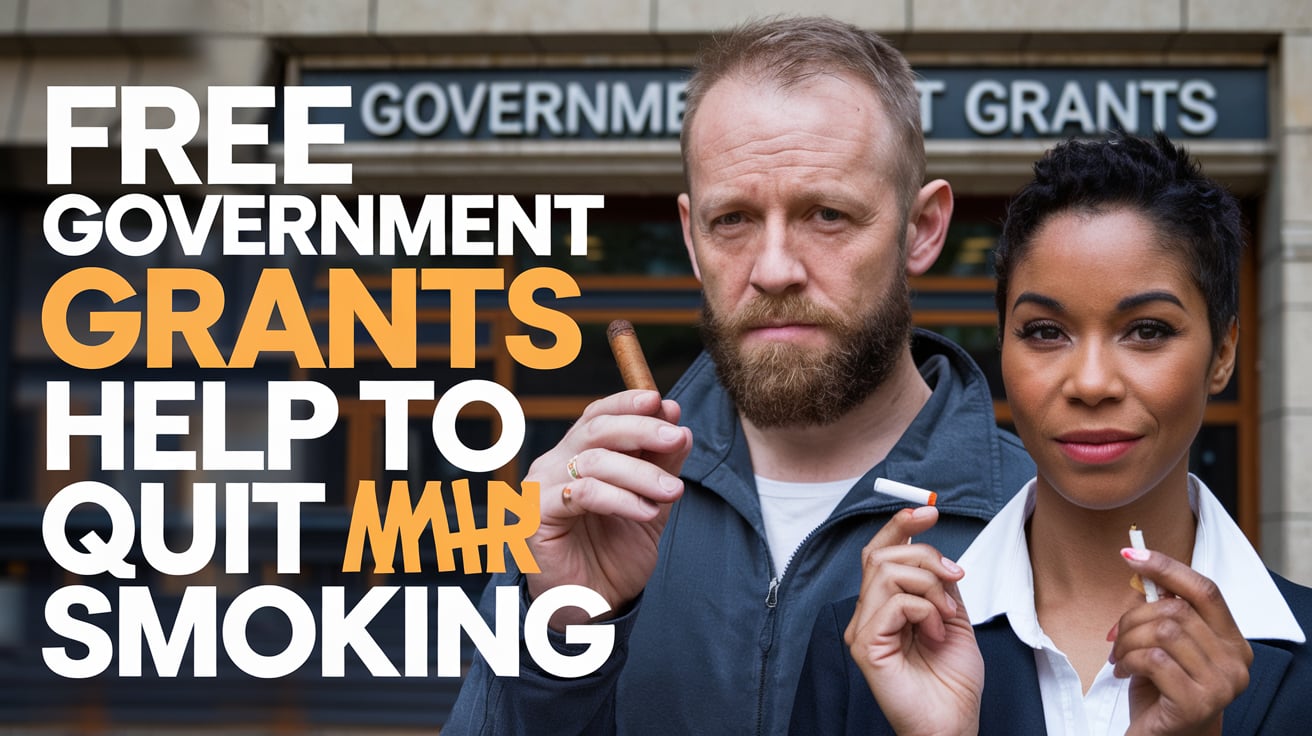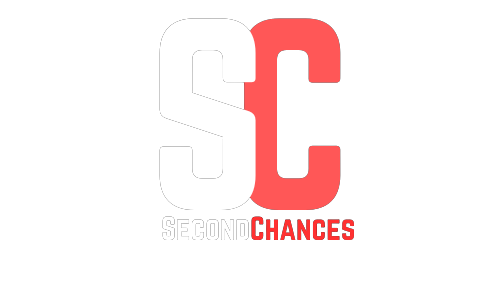Want to quite smoking?, If Yes then there are Free Government Grants Which Help to Quit Smoking.
Smoking is a leading cause of preventable diseases, including cancer, heart disease, and respiratory problems. Despite the well-known health risks, many individuals struggle to quit due to addiction, stress, and lifestyle factors. Recognizing the importance of supporting people who wish to quit smoking, governments and non-profit organizations worldwide provide various forms of assistance. One of the most valuable ways to support smokers in their journey toward quitting is through free government grants or help.
This article explores what government grants or help are available for individuals who want to quit smoking, the eligibility criteria, how to apply, and the resources available to aid in the quitting process.
Table of Contents
What is a Government Grant?
A government grant is a financial assistance provided by the government to individuals or organizations to fund specific purposes or activities. Unlike loans, grants do not need to be repaid. Grants can come from federal, state, or local government bodies, and they are typically provided to support public health initiatives, education, research, or services.
In the context of smoking cessation, government grants or programs are designed to reduce the health risks associated with smoking and support smokers who wish to quit. These grants may cover smoking cessation aids, counseling services, or community outreach programs.
What Are Free Government Grants Which Help to Quit Smoking?
Free government grants or help to quit smoking refer to financial assistance, support programs, and resources provided by government agencies or non-profit organizations to assist individuals in quitting smoking. These programs can include:
- Free counseling sessions (individual or group therapy)
- Nicotine replacement therapies (NRT), such as nicotine patches, gum, lozenges, and inhalers
- Prescription medications (e.g., varenicline or bupropion) to reduce cravings and withdrawal symptoms
- Educational materials and programs to inform about the risks of smoking and the benefits of quitting
- Support hotlines and online resources for continuous guidance
These programs are available to encourage smokers to quit and maintain a smoke-free life.
What Are the Eligibility Criteria to Receive Free Government Grants Which Help to Quit Smoking?
Eligibility for free government grants or assistance programs can vary depending on the country, state, or local government. However, the general criteria typically include:
- Age Requirement: Some programs are available to smokers of a certain age group, often 18 years or older, though some programs may cater to minors.
- Residency: Applicants must usually be residents of the country or state providing the grant.
- Health Condition: Some programs may prioritize individuals with specific health conditions related to smoking, such as lung disease, heart disease, or cancer.
- Income Level: In some cases, income may be a factor in determining eligibility, with low-income individuals receiving priority for financial assistance.
- Smoker Status: Only individuals who currently smoke or are actively trying to quit may be eligible.
It’s important to review specific program guidelines to determine your eligibility.
How To Apply for Government Grants to Quit Smoking?
To apply for government grants or assistance to quit smoking, follow these general steps:
- Research Available Programs: Start by researching government grants or cessation programs in your area. Federal and state health departments often run smoking cessation initiatives.
- Visit Government Websites: Websites like Smokefree.gov (in the U.S.) or your country’s health department site will provide details on the application process for cessation grants or programs.
- Complete the Application: Follow the instructions to complete an online application or paper form. Be sure to provide accurate information about your smoking habits, health status, and any other requested details.
- Attend Required Assessments: Some programs may require an initial health assessment or counseling session to assess your smoking habits and readiness to quit.
- Submit Supporting Documentation: Certain programs may ask for documentation of your identity, residency, and income level.
- Wait for Approval: After submitting your application, wait for approval. You will be notified whether you qualify and how to access the offered services.
What Are the Documents Required to Avail Free Government Grants Which Help to Quit Smoking?
To apply for free government grants or help, you may need to provide several documents to verify your eligibility:
- Proof of Identity: A government-issued ID (driver’s license, passport, etc.).
- Proof of Residency: Utility bills, lease agreements, or other documents that confirm your residence.
- Income Verification: Pay stubs, tax returns, or a letter from your employer to confirm your income level.
- Health Documentation: In some cases, proof of smoking-related health conditions may be required to prioritize treatment.
- Completed Application Form: The program may require you to complete an application form, available online or through the health department.
What Are the Benefits of Quitting Smoking?
Quitting smoking has a profound impact on both physical and mental health. Here are some of the key benefits:
- Improved Respiratory Health: Quitting smoking reduces the risk of chronic respiratory conditions, including COPD and emphysema.
- Lower Risk of Heart Disease: Within a few months of quitting, the risk of heart attack and stroke drops significantly.
- Reduced Cancer Risk: Smoking is a leading cause of various cancers, especially lung cancer. Quitting reduces the risk of developing cancer.
- Better Mental Health: While smoking may be associated with stress relief, quitting can result in better mental clarity, mood, and lower anxiety in the long run.
- Financial Savings: The cost of cigarettes adds up quickly. Quitting smoking can save you thousands of dollars annually.
- Enhanced Quality of Life: Non-smokers tend to live longer, healthier lives with more energy and fewer sick days.
Free Government Grants Which Help to Quit Smoking
In many countries, including the U.S. government-sponsored programs support individuals who want to quit smoking. These programs often offer:
- Free Nicotine Replacement Therapy (NRT): Government programs may provide free or subsidized nicotine patches, gums, lozenges, or inhalers to help reduce cravings.
- Free Counseling: Telephone counseling, online counseling, and face-to-face sessions with trained professionals are offered to help individuals quit smoking.
- Support Programs: Many health departments run local community programs that offer smoking cessation resources and help.
- Hotlines: Support hotlines like the 1-800-QUIT-NOW in the U.S. connect smokers with resources and free advice.
Government Programs to Help Quit Smoking
Smoking remains a leading cause of preventable diseases and death worldwide, prompting many governments to invest in various programs to help smokers quit. These initiatives typically offer free or low-cost services, resources, and support to make quitting easier and more accessible. Below, we’ll explore some key government programs designed to help people quit smoking, particularly focusing on the United States, the United Kingdom, and other global initiatives.
1. Smokefree.gov (United States)
Smokefree.gov is a comprehensive program provided by the U.S. Department of Health and Human Services (HHS), offering a variety of free services to support individuals who want to quit smoking. Smokefree.gov helps people at different stages of the quitting process by providing tools, advice, and personalized support.
- Free Counseling: Smokers can receive free phone coaching from trained counselors. Smokers can call 1-800-QUIT-NOW (1-800-784-8669) to access these services.
- Text Message Support: SmokefreeTXT is a free service that sends text messages with tips, reminders, and encouragement.
- Online Resources: Smokefree.gov offers online cessation programs, including step-by-step plans, tools, and motivational tips for people who prefer self-guided assistance.
- Nicotine Replacement Therapy (NRT): Some states offer free NRT through this program, particularly in the context of special initiatives or through health departments.
For more details, visit Smokefree.gov.
2. Tobacco Cessation Programs by the Centers for Disease Control and Prevention (CDC) (United States)
The CDC offers various resources for smokers who want to quit, including partnerships with states and local communities to deliver programs that promote smoking cessation.
- Tips from Former Smokers: This initiative features real-life stories from people who have quit smoking and how their lives have changed for the better. The campaign provides strong motivational messages to help smokers recognize the benefits of quitting.
- National Tobacco Control Program: This program funds state and community-based programs to implement evidence-based strategies to reduce smoking rates and provide support to those who wish to quit. These services may include free or low-cost quitlines, counseling, and NRT.
- State Health Programs: States such as California, New York, and others often run cessation programs that are supported by the CDC, which provide free or low-cost resources for residents who want to quit smoking.
To access more information, visit the CDC’s Tobacco Control Program website at CDC Tobacco Control.
3. The National Cancer Institute’s (NCI) Smoking Cessation Programs (United States)
The National Cancer Institute (NCI), part of the National Institutes of Health (NIH), provides a range of resources aimed at helping individuals quit smoking. The NCI’s resources are designed to support smokers with evidence-based methods, including medications and behavioral counseling.
- Smokefree.gov: As part of the NCI’s mission to help people quit smoking, Smokefree.gov is a comprehensive platform that offers support, tools, and resources.
- Clinical Trials: The NCI offers information on clinical trials that study new smoking cessation treatments, providing an opportunity for people to participate in research and receive the latest support and treatments.
You can learn more about NCI’s efforts and how to quit smoking by visiting Smokefree.gov.
Organizations and Nonprofit Organizations That Provide Help to Quit Smoking
Several organizations and non-profits work in partnership with governments to provide cessation support. These include:
- American Lung Association (ALA): Provides resources, information, and programs for quitting smoking.
- Smokefree.gov: A U.S.-based program that offers tools, text message programs, and quit coaches.
- The National Cancer Institute: Offers free, evidence-based smoking cessation resources.
- Action on Smoking and Health (ASH): A UK-based charity that provides advice and support for quitting smoking.
- Quit.org.au: An Australian initiative offering a range of resources for quitting smoking.
Additional Online Resources to Quit Smoking
There are numerous online resources and apps that can assist you in quitting smoking:
- QuitNow! – A mobile app that tracks your progress and helps you stay motivated.
- Smokefree Text Messaging Service: A free text service in the U.S. providing daily support and tips.
- BecomeAnEx: A free online program that offers step-by-step guides for quitting.
FAQs
Are there any costs involved in government smoking cessation programs?
Most government-funded programs provide services free of charge, but there may be minor fees for certain services, such as prescriptions or premium counseling services.
How long does it take to see the benefits of quitting smoking?
Health improvements begin almost immediately. Within 20 minutes, heart rate and blood pressure drop, and within a few months, lung function improves significantly.
Can I receive help if I’m not ready to quit smoking but want to try?
Yes, many programs offer guidance for smokers who are in the contemplation stage of quitting. Support is available even if you’re not sure about quitting yet.
Do I need to be in a specific health condition to qualify for a grant?
While some programs prioritize individuals with smoking-related health issues, most programs are open to any smoker who wants to quit.
Conclusion
Quitting smoking is one of the best decisions you can make for your health. Governments and organizations provide a wealth of resources and financial assistance to help smokers quit, including free counseling, medications, and nicotine replacement therapies. Whether through government grants, health department programs, or nonprofit support, there are ample opportunities for individuals to access the tools they need to quit smoking and improve their quality of life.


